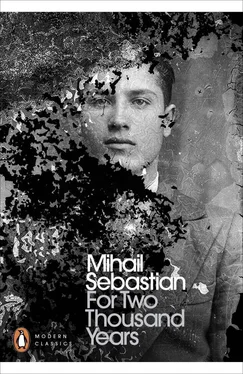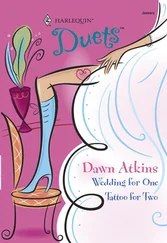There is less litigation than before, but there is still enough. Rice keeps paying and they keep suing. There are some local adversaries who won’t give up while they’re still breathing.
From time to time a window or two gets smashed at the refinery or the offices. Where do these stones fall from? Who throws them? Why? As usual, the investigation makes little progress. It’s more prudent that way. Twenty years from now, everything will be forgotten completely.
Meanwhile, we build. The refinery was finished nearly two years ago. I’m astounded today to think that I participated in its construction. The offices have gone well enough, the houses incomparably better. I think by next summer we’ll have finished everything. We’ve kept moving our cabin and building site outwards, always towards the edge of this little town, which has gone up before us. Five years! I can’t believe how it’s flown.
*
There’s been a switch of night-shifts at the oil wells. From here, on the porch of the cabin, the lamps of those returning to the village are clearly visible. It hasn’t rained for about two weeks and the night is perfectly clear. Towards Ploieşti, the sky is phosphorescent. It must have been a terribly hot day there. The newspapers talk of 40 degrees in Bucharest.
How strange the chirping of the crickets seems, here, among factory smokestacks, oil wells, water tanks and factory walls!
Occasionally a locust will leap from among the stones and disappear somewhere. We haven’t managed to wipe out the flora and fauna of the area. The grass grows furiously wherever there’s a scrap of soil. A few days ago, Marin Dronţu was astonished to glimpse a squirrel on top of the house. (But where did it come from? Where?)
The persistence of the natural world, of centuries of vegetation. This too will pass … Nothing remains unchanged when Ralph T. Rice descends upon it …
The nights here are long, calm and congenial. I can’t bear to go to bed. I read a little, stroll a bit, and spend a long time stretched out on the deckchair ‘with the stars’ as Dronţu calls it, ironically. There was talk of going this evening to the home of a young couple, the Duntons, to play music on the gramophone. They’ve received some new records from England. But I feel so lazy.
I think Dronţu has a romantic assignment in Uioara. A fresh conquest. ‘Some of these girls, pal, they’re like roses.’
‘You’ll be the terror of the women, Marin.’
‘Well, yeah, why not? Do I have the energy? You bet I do.’
Twice a week he escapes to the city to buy powders and perfumes for the ‘girls and wives’. He has a special love for rouge and tobacco-scent. All New Uioara smells of bad cologne.
It would be easy to establish by smell the houses where our Marin has passed through and made a conquest.
Green leaf of the beanstalk
You’re a miserable little weed
I hear him singing inside in his room, and his happiness is infectious. In several minutes he’ll come out ‘prepared’, with a stiff collar, a red tie and a walking stick in hand, and he’ll say to me again, before leaving:
‘I wouldn’t put myself out for that Marjorie you’re all swooning over, wouldn’t put myself out, though I could sweep her away. In three days, the game would be played out. I’d have her wrapped around my little finger. But I don’t like her, sir, I don’t like her, she’s pale and kitten-eyed. Call yourselves men? Tulips, the lot of you.’
I needed time to learn to know and love Marin. At first, I couldn’t for the life of me understand what he was doing in the master’s office. I don’t think he’s achieved much as an architect. A decent sort, scoring just enough marks to graduate, he was doubtlessly a useful office worker. He is less use in the workshop, disliking calculations and drawing boards, rather better on site, where he sees and does everything. Anyhow, I was more than a little surprised to find him in the office of the most refined man I know.
Mircea Vieru is a Cartesian lost in Bucharest.
Marin Dronţu is a seminarian lost in architecture. A seminarian in his mode of thought, in his superstitions, in his stubbornness. ‘Salt of the earth’, as they say, flatteringly — a compliment that Mircea Vieru would detest, he being composed of a thousand nuances and not at all straightforward.
But Marin happily accepts such a description. And Marin (from whom I’ve learned to call Vieru ‘master’, though it was hard at first to call him anything other than ‘sir’) loves him with devotion, like a subject. ‘He’s a Lord,’ he told me once, with utter respect, speaking of the master, and his use of this word endeared him to me because I understood that if Vieru is in fact a lord then Dronţu is, in turn, a peasant rather than the urbanite he strives to be, with his offhand manner, his vulgar sense of humour and his three-tone ties.
Later, when I heard from others the story of the chapel which he erected in his village in Gorj with money scrimped daily, in poverty, when I heard the proud inscription he engraved there in stone, I thought there was after all something to him that outbalanced his vocation as a successful Lothario with ‘the ladies’, as he called them, proud of his conquests.
‘This chapel has been erected by Marin Dronţu, son of Nicolae Dronţu, who was born in this village, as were his own father and grandfather before him and all his forefathers.’
Having become a townsman, Marin Dronţu retains an ancestral contempt for those with pretensions. I think this is the source of his deliberate, affected vulgarity. He wants to be seen to be mocking ‘frills and fripperies’ — an expression that definitively dismisses all that can’t be put plainly and in three words. Sometimes he wears me out with his insistence on recommending himself with: ‘I’m a peasant’. This kind of exaggeration is another form of affectation. For Dronţu, speaking correctly is a sign of pretentiousness. Bad grammar and using a certain vocabulary is almost a duty with him, a way of stressing that he still has his hand on the plough and is laughing at all our sensitivities. ‘The apples ain’t bad, the girls ain’t ugly, the wine ain’t neither.’ When he catches himself speaking correctly, by accident, he immediately reverts to form. Rudeness is his personal form of elegance, lightly illustrated with a smile to tell you that he could behave differently if he wanted, but he’d rather not.
To all this, you can add his extraordinary bad taste, his unparalleled sartorial eccentricity. If one evening he wears a black coat, he’s sure to put on yellow boots. If his tie is blue, his handkerchief will certainly be red. If he wears a raincoat, he’s sure to choose a melon-coloured hat. It’s an inventive and vigorous bad taste. I think it’s a sign of health and self-assurance. Marin Dronţu doesn’t have doubts, doesn’t question himself, doesn’t look for secrets. In Bucharest he has numerous ‘lovers’, one or two in every neighbourhood, he takes them to the cinema, buys them peanuts and gives them red carnations and Flora cream on their birthdays. Here, he sleeps with girls and women from Uioara. If he happens to suffer disappointment in love, he sings one of his songs from Gorj, and it passes.
He went to church on Sunday, in the village, and sang hymns. He has a warm voice, like that of a big child. He sings seriously, with all his heart, imbuing the song with solemnity. Leaving, I clasped his hand and told him how beautifully he had sung. He blushed and, for the first time, I saw him embarrassed in the face of praise.
*
In Câmpina, at the railway station, awaiting the courier which the master had announced by telephone from Braşov, I caught sight of Marga and her husband through the train window. She’s still beautiful, which makes me happy about the past — but looks set to put on weight, which makes me happy about the future.
Читать дальше












